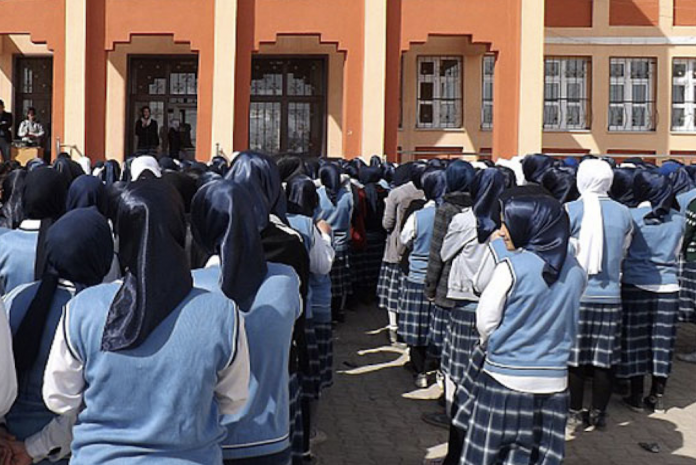The removal of a co-education clause from the Education Ministry’s regulations by the Turkish government led by President Recep Tayyip Erdoğan has stirred a debate in Turkey.
The move has drawn criticism for allegedly laying the groundwork for gender-segregated education on a wide scale. However, the ministry said as per the Basic Law on National Education, mixed-sex education at schools is essential.
“Article 15 of the basic law on national education says, ‘The co-education of girls and boys at schools is fundamental. But, depending on the education type, opportunities and difficulties, some schools might offer education to only girls or boys.’ As it has been stipulated by the relevant media organs, the termination of co-education or laying the groundwork for such a situation is strictly not the case,” the Education Ministry claimed in a statement on Tuesday.
According to a report by the Hürriyet Daily News, the statement came after the Education Ministry revised the regulation on “opening, shutting down and naming institutions” and removed a clause reading “Education at multi-program Anatolian high schools, vocational and technical education centers and vocational education centers is to be taught coed.” The updated regulation was published in the Official Gazette on Sept. 10.
In a bid to clarify what the revision stipulates, presidential spokesperson İbrahim Kalın said on Tuesday that co-education in Turkey is to “continue as is.”
“Our ministry has issued a statement. A regulation has been undertaken based on a court decision following a citizen’s application [of appeal against the relevant clause]. But this has been turned into propaganda alleging the ban of co-education in Turkey. Such a case is not the issue,” Kalın said during a press conference following a Cabinet meeting in Ankara.
“But there is a decision enabling the provision of education in some schools to be gender-segregated. An increase in options, not the minimization of them, is the case here,” Kalın claimed, adding that “democratic societies” require an increase in options to offer citizens in terms of the number of school types.
The revised regulation, however, has been criticized by various segments of society, including Turkey’s main opposition Republican People’s Party (CHP) and the İYİ Party.
“No political governance can attempt to ban co-education, which is the chief pillar of the Republic [of Turkey]. Education Minister Ziya Selçuk is a person who has a scientific background in education. I do not think he will let a step be taken that will ban co-education,” CHP Vice Chairman Yıldırım Kaya said.
“The basic law on national education accepts co-education as essential. It says that in compulsory situations, girls or boys high schools can be opened. The removal of the phrase ‘co-education’ will pave the way for girls or boys in high schools. It removes a legal safeguard,” said Özgür Bozdoğan, the higher education and education secretary of the Education and Science Workers’ Union (Eğitim-Sen).
















